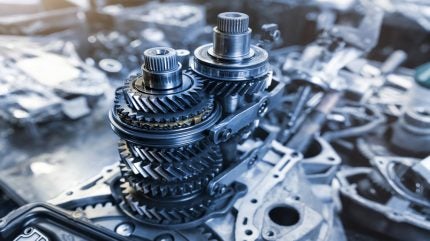
Europe’s automotive components trade association – CLEPA – says that US President Trump’s new tariffs will put at risk a quarter of the EU’s trade surplus in automotive components.

Discover B2B Marketing That Performs
Combine business intelligence and editorial excellence to reach engaged professionals across 36 leading media platforms.
CLEPA says that For Europe’s automotive supply industry, ‘exports have been a lifeline in uncertain times’. Since COVID, increased trade with the US has helped offset the sharp decline in Europe’s trade balance with China. Imports of Chinese automotive components (excluding batteries) have nearly doubled over the last five years, reshaping the sector’s supply chains, it says.
But now, a new challenge looms, says CLEPA, one that could ‘blow up a key pillar under the sector’s export-oriented strategy’.
President Trump imposed tariffs of 25% on aluminium and steel this week, which include components made from these materials, including some used in the automotive industry. A further round of tariffs could hit European car and component exports into the US across the board. This, CLEPA maintains, threatens to ‘upend’ one of the industry’s key pillars: the US alone accounts for one quarter of the EU’s trade surplus in automotive components.
Moreover, CLEPA maintains that for European auto suppliers, these tariffs present an existential threat that could exacerbate job losses and further weaken investment.
It also says the impact goes beyond potential tariffs on EU exports. The US decision to impose tariffs on trade from Mexico could hit European suppliers hard, as they have invested nearly €10 billion in Mexican production facilities over the last decade.
With growing uncertainty in the North American market, European companies face tough choices – relocate production, absorb costs, or lose market share, CLEPA maintains.
The trade body says shifting trade and investment relationship with both the US and China underscores an urgent reality: the EU must ‘rethink its trade and investment strategy before it falls behind’. Further, it says strengthening ties with ‘key partners including the UK, South Korea, Japan and Mercosur-countries, will be as important as reinforcing investment in its own industrial base’.
Yet, as Europe navigates these challenges, CLEPA says its investment in the green and digital transition remains weak. Foreign Direct Investment (FDI) fell to the lowest level in three years, while the US attracted over two times as much investment over the same period.
In a statement, CLEPA concludes: ‘Squeezed between an “America First”-trade policy and China’s growing dominance, Europe finds itself at a crossroads. A bold emphasis on competitiveness, innovation and investment in EU value add will be needed to avoid that the future of automotive is made outside of Europe.’






